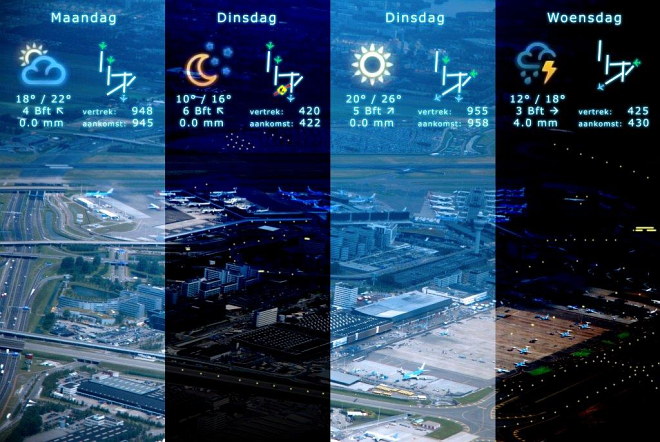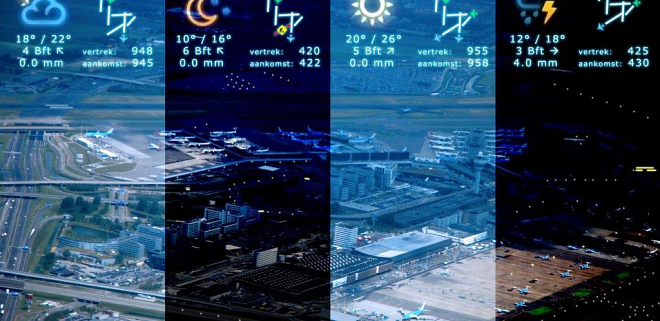In the spring of 2013, the National Aerospace Laboratory of the Netherlands (NLR) kicked off a wide-ranging programme aimed at significantly improving the efficiency of airport operations. Quicker detection of frequently occurring disruptions should make it easier to anticipate problems, and thus to streamline logistical processes. Naples International Airport has been selected as the initial test site for the Airport Capacity Forecast (ACF) project, but the researchers also plan to apply the outcomes to benefit larger airports. The ACF project should begin to bear fruit in about two years’ time.
Tourists on their way to a holiday destination generally get the impression that a modern airport operates like a well-oiled machine. And that impression is usually correct, when all processes function as required. However, the complex organization of an airport is not always fully capable of responding adequately to unexpected events. A problem occurring somewhere in the web of interrelated processes may result in a cascade of disruptions, and the parties involved are sometimes unable to improvise quickly enough to re-establish routine operations.
The weather is one of the main limiting factors in the smooth running of an airport. Poor meteorological conditions can disrupt air traffic, for instance by restricting runway usage. Problems can also arise in baggage handling, as a result of security alerts and because of technical malfunctions in aircraft. There is a long list of potential bottlenecks that can suddenly impact airport operations.
The purpose of the ACF programme is to analyze up to two days in advance the capacities of a multitude of logistical processes, and subsequently to identify ways of addressing disruptions. In the case of runway usage, for instance, the researchers can look into ways of anticpating to weather forecasts. Based on this information, stakeholders will be able to act at an early stage through for example grounding aircraft destined for the present airport.
Also in case of e.g. strikes, scenarios can be developed to identify ways whereby the parties involved can resume their normal roles as quickly as possible. This is in contrast to the current situation, where airport personnel are often simply waiting for each other to resume routine operations.
The results of the ACF project will offer more than just economic benefits. An increased ability to respond to process disruptions will also enhance the trust of users in the airport organization, so that travelers will feel more secure about their flight.
The airports of Paris, Frankfurt and Amsterdam have already indicated their willingness to participate in an expert group that will monitor the progress of the ACF project.

Airport Capacity Forecast example


